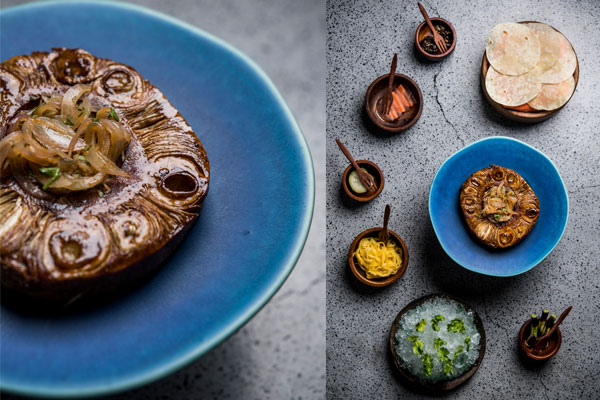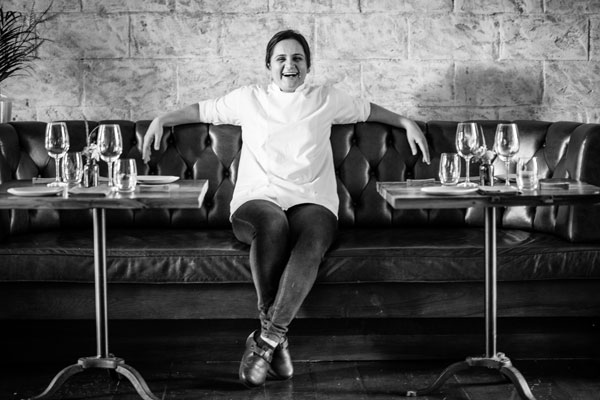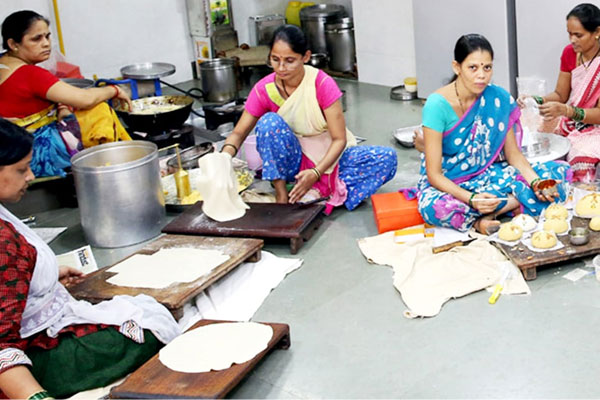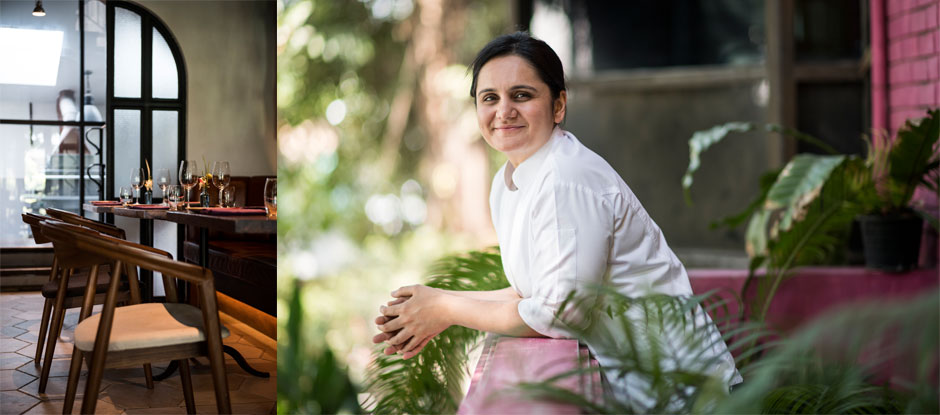Garima Arora of Gaa in Bangkok has been voted the elit™ Vodka Asia’s Best Female Chef 2019. In the latest edition of the Igniting Passion series, presented by elit™ Vodka, the Mumbai-born cook talks about the importance of changing the global mindset around Indian cuisine.
With a menu serving unripe jackfruit, liquid banana bread and duck doughnut, restaurant Gaa is not instantly recognisable for one particular cuisine. The chef is from Mumbai, the location is Bangkok and the ingredients are local – yet Garima Arora defines her debut solo restaurant as neither Thai nor Indian. Nevertheless, behind every dish there are cooking techniques based on centuries of Indian history; techniques that have crossed into Thailand and, over time, influenced much of Asia. It is these Indian techniques that are very much at the heart of Gaa and its success, and which Arora wants to show to the world.
“Chefs in the West have always looked at French techniques to make something modern,” says 32-year-old Arora. “Indian techniques have the same tools, or can provide you with the techniques to do the same. I try to borrow from these tools or use these resources to make up something that is completely new and different. So what French cuisine does for chefs in the West, Indian cuisine can do for chefs in this part of the world also.”
Unripe jackfruit, roti and pickles
The techniques Arora refers to include cooking on fire, pickling and fermentation, extracting umami from vegetables and using different types of oils – peanut, coconut, sesame – to transform flavours. She says it’s time to change the way the world sees Indian food as “simply curry or chicken tikka masala” and to cultivate a global appreciation for a cuisine that is as complex and as versatile as its French counterpart.
“People think they know Indian food, or the version of Indian food that is available throughout the world and they think that’s it,” Arora says. “That’s the reason they don’t go to India thinking they’re going to discover something new. It falls on chefs from the country to change that perspective, to change that point of view, to change the mindset of people who think that is Indian food. Indian food has the tools, the resources, to form the basis of something modern, something more relevant. It’s down to the cooks to make it more relevant to this time. The change starts from within.”
At Gaa in Bangkok, which she opened in April 2018 after a planned restaurant opening in her home country fell through, Arora is doing her best to change those perceptions, creating something so new that diners might not recognise it as Indian at all. She is happiest when diners react with surprise to her dishes and recognise the level of thought put into every element of her dishes.
Arora pinpoints the time when she really started to think differently about food as when she worked at Noma in Copenhagen, from 2013 to 2015. “My time at Noma shaped me – changed me – not only as a cook but also as a person,” says Arora. “I learnt to think a particular way about food and why I do this.” Noma chef-owner René Redzepi speaks highly of Arora too, recalling in an Instagram post that she turned down his offer to promote her to sous chef.
Arora recently returned to Noma to try the restaurant's new seafood menu, and says the experience “blew my mind” because of the level of thought that went into each dish. She was particularly struck by the use of a lacto-fermented quince to squeeze over fish instead of lime. She had witnessed years of development during her time at Noma with cooks trying to find the perfect use for quince, and she considered the result “stunning”.
The chef’s interest in food is something that goes back to her childhood in Mumbai. Her parents organised events and were often travelling the world, so Arora spent part of her childhood in the company of her grandparents, learning traditional techniques. When her mother and father returned from their trips abroad, they would try to recreate recipes learnt overseas but with local ingredients, which the young Arora found fascinating.
As the only Indian female head chef to have earned a Michelin star, by way of her success Arora highlights the underrepresentation of her gender at the top end of the restaurant sector. Back in Mumbai, she supports an association called Rajasthani Mahila Mandal, which allows women to achieve economic independence by producing and selling their food, whilst giving them access to family planning, health clinics and other services. The association is one of many across India.
“Women’s liberation or women’s emancipation can only happen with two things: first, education and second, economic independence,” Arora says. “And what better way to gain economic independence than with something that you’re so used to and you’re so good at and something that comes naturally to you, which is food. In India, chefs are obviously men but at home it’s always the women who do the cooking. They have this immense wealth of knowledge, of techniques, of the way we have done things in the past, which even restaurants don’t have”. 
Women of Rajasthani Mahila Mandal
While she hires all her cooks entirely based on their skills and ability, Arora acknowledges that the restaurant world is still “prohibitive” to women who want to raise families. She has set up her kitchen in such a way that staff are able to take time off when they need to, but says this is not always financially viable.
Arora says she would like to open a restaurant in India some day, but for now she is focused entirely on Gaa – partly because she is so “in love” with her adopted home city, Bangkok. Thailand is a place where Arora has always felt at home, particularly since her travels to the north of the country, where its strong connections with India are most evident because of historic spice routes.
“If you spend some time in the northeast of India and the northern part of Thailand, the techniques of curing, of fermenting, of eating, are so similar,” Arora says. “They use a lot of dry spices up north and that is because the dry spices come from India. You can literally smell the spice route there. So there’s a very strong connection between that region of India and Thailand.”
Looking at the natural marriage of Indian techniques with Thai ingredients, it’s not difficult to see why Arora’s food at Gaa has gone down such a storm with critics and diners in Bangkok and beyond. With the spotlight shining brightly on Arora, she is well-placed to lead a change in perceptions of her country’s cuisine, as well as to continue to create genuinely original food.
Images (except for Rajasthani Mahila Mandal): Anne-Emmanuelle Thion for Asia's 50 Best Restaurants
Watch the video with Garima Arora as she returns to Mumbai to explore her passion for Indian gastronomy:
Asia's 50 Best Restaurants 2019 will be announced in Macao on Tuesday 25th March. Follow on Instagram, Facebook, YouTube and Twitter for news, interviews and videos.

